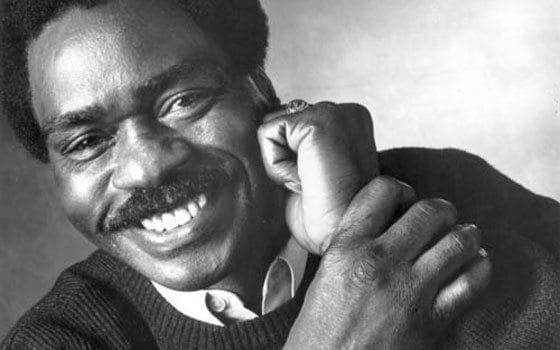

In 1967, Rubin “Hurricane” Carter was in hell. He had just received three concurrent life sentences for triple murder — crimes he adamantly claimed he did not commit. The professional boxer, who just a few years earlier had been named the number one middleweight contender in the United States, spent 19 years in prison an innocent man.
But in hell, he found heaven.
In his new memoir, “Eye of the Hurricane: My Path from Darkness to Freedom,” Carter details his life behind bars, and the personal transformation — what he calls “waking up” — that ultimately led to his exoneration.
Carter grew up in Paterson, N.J. and as a youth bounced between juvenile prison and military service. As an inmate and soldier, Carter honed his fighting skills, and after his last stint prison, he was offered numerous contracts as a prizefighter. With hard work and determination, Carter quickly ascended the ranks of professional boxing and was dubbed “Hurricane.”
But on June 17, 1966, his entire world changed. Two black gunmen entered a bar in Paterson and open fired, hitting four and killing three. Carter had already been a target for local law enforcement and the FBI after making racially charged comments in public, and became the prime suspect in the murder investigation along with his friend John Artis.
Despite overwhelming evidence in their favor, Carter and Artis were found guilty and sentenced to life in prison. The wrongful convictions made waves throughout the country, inspiring protests, Bob Dylan’s song “The Hurricane,” and eventually, the 1999 film “The Hurricane” starring Denzel Washington.
While in prison, Carter also penned his first autobiography, the raw and angry, “The Sixteenth Round: From Number One Contender to #45472.” His writing railed against the American prison system and its “deliberate execution of each inmate’s personality.” In prison, Carter said, “Hopelessness rolled down me like a dark blanket smothering my pride in everything good that I had worked so hard to accomplish.”
But in his new book, written after his release from prison, Carter speaks not with hopelessness and anger, but with hope and love. As an inmate, what he calls “the lowest level of existence without being dead,” he eventually immersed himself in books, especially the spiritual and philosophical writings of the Bible, the Qur’an, Krishnamurti, Frankl, and others, and discovered that the only way to change the world around him was to first change himself.
“Consciousness allows you to discover the true purpose of your life,” he wrote. “For me, that purpose became seeking out the perfection in myself, seeing exactly who I was then, what I had been in the past, and become what I could be: real, right, good, and true. A conscious being.”
And this was his heaven.
As he began to “wake up,” melting away the fear, rage, and hatred that had characterized his old life, Carter also found new possibilities for exoneration. With the help of a group of Canadians, Carter appealed to a federal judge, who overturned the conviction on the grounds that it was based on “racial prejudice” and the “withholding of evidence critical to the defense.” In 1985, Carter walked away a free man.
“After freeing myself from the universal prison of sleep, I was released from the actual prison of brick, steel, and mortar, humiliation, and degradation,” he wrote.
Since his release, Carter, now 73 years old, has been living in Toronto, working as an advocate for the wrongfully convicted, serving as the executive director of the Canada-based Association in Defence of the Wrongfully Convicted, and now, the CEO of Innocence International. He also received two honorary doctorates of law, one from York University in Toronto, and the other from Griffith University in Brisbane, Australia.
In an interview with the Banner, Carter spoke out against the perniciousness of the American prison system. “It affects everybody — the violence, the humiliation, the degradation, spending long periods in hate,” he said. “It destroys families, it destroys mental health, it destroys self-respect. It destroys everything it touches.
“More than 7 million people are under the control of the criminal justice system as we speak,” he continued. “So it’s become big, big, big business. And who can resist the smell of all that money?
“The prison system has proliferated a great deal in America, and that has affected the whole of society, not just those in prison, but those outside of prison. It affects us all.”
At the same time, Carter realizes, “Going to prison was the best thing that ever happened to me,” because “[I was] in an environment that forced me to wake up.” Prison separated him from the “herd,” allowing him to better understand himself and society. “I wouldn’t recommend it for anybody else,” he is sure to qualify, “but it was the best thing that ever happened to me.”
For those now incarcerated, Carter offered the simple advice, “now’s the time.” It doesn’t matter if you’re guilty or innocent, he explained, “Use this time to better yourself” by learning to read, write or developing skills. And of course, he said, “dare to dream.”
For Carter, his new book is a testament “that anybody can change” — if Hurricane, the angry fighter can find peace, anybody can. “Whatever you can believe in or conceive of can be achieved, whatever it is.”







